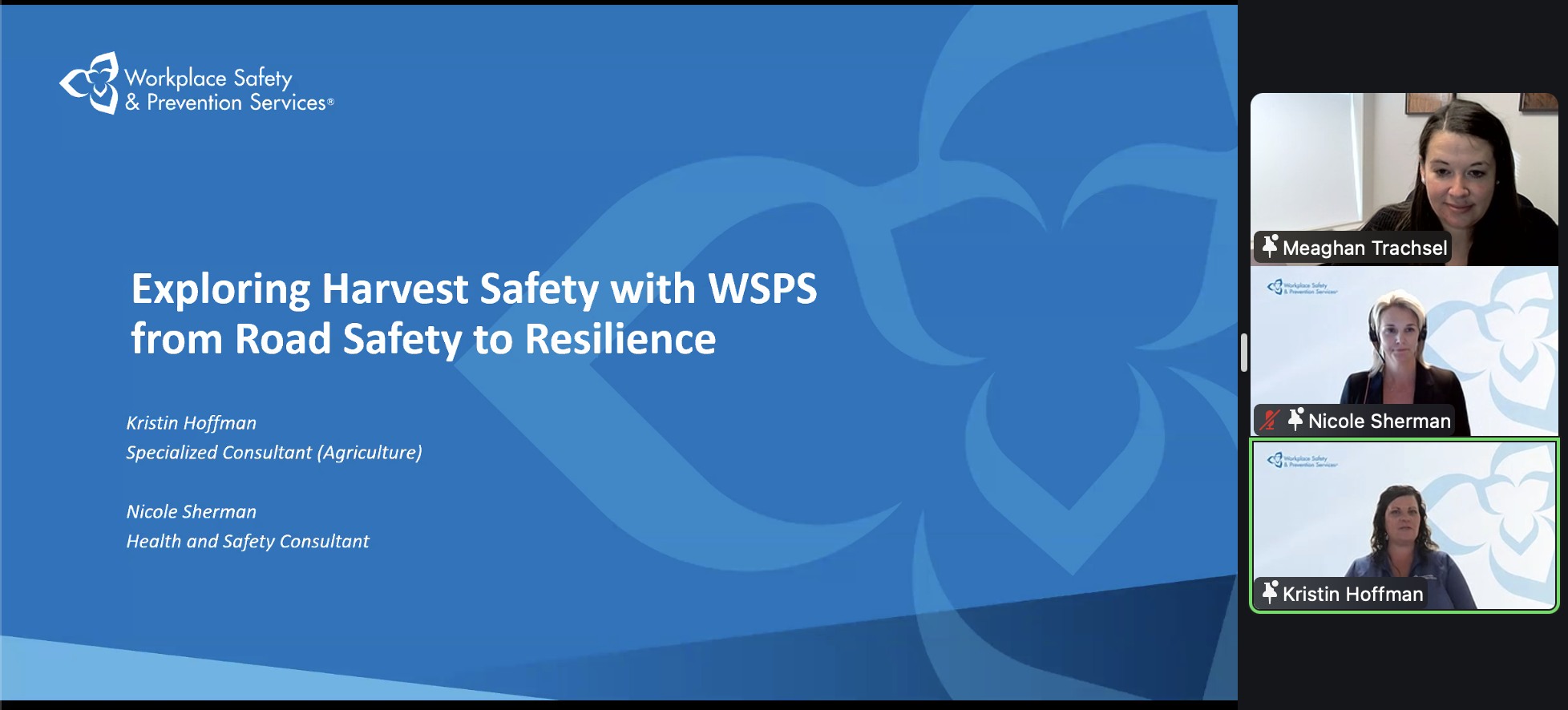(Resource News International) — The Canola Council of Canada is hoping a meeting planned for Friday (Oct. 30) between Canadian and Chinese government officials results in at least a six-month extension before China implements the need for phytosanitary certificates on all imported canola.
The Canadian Food Inspection Agency (CFIA) advised the grain trade that it received a notice from China on Oct. 20 that effective Nov. 15, a phytosanitary certificate is required for canola shipments to China certifying that the shipments are free from blackleg.
Nov. 15 is the date of shipment from Canada, not arrival in China.
Read Also

Tips for staying safe this harvest season
Kristin Hoffman of WSPS explains measures for increased farm safety around harvest season
“The problem is that blackleg while common in Canada can also be found in other canola producing regions of the world including Europe, Australia and even China,” council spokesperson Debbie Belanger said.
The council has put together information that will hopefully satisfy Chinese officials that Canada’s strains of blackleg will not get into their system.
CFIA has indicated it will not be able to issue such a certificate, as blackleg is a common plant disease of canola and there is no agreed to testing method.
Blackleg is a serious plant disease of canola that can result in significant yield loss in susceptible varieties. It is caused by the fungus Leptosphaeria maculans and commonly occurs in canola-growing regions throughout the world.
Blackleg is only a disease of some plants. It does not affect animals. Although blackleg does occur in China, the Chinese have indicated that they have non-virulent strains, while Canada and Australia have virulent strains that could impact their rapeseed crop.
Australia has also been notified that its canola shipments to China must be certified free from blackleg effective Oct. 15.
“Without China taking two million tonnes or more of Canadian canola during the 2009-10 crop year, that will leave a giant gaping hole in Canada’s canola demand front,” said Mike Jubinville, an analyst with ProFarmer Canada.
If Canada cannot move canola to China that amount will be hard to find another buyer for, he said.
However, he also pointed out that Chinese canola users have few other alternatives for supply under these new import restrictions.
Export sources have speculated that the new Chinese rules had more to do with scaling back canola purchases and were a trade barrier rather than a plant health issue.











